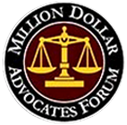You’ve received a lawsuit settlement. Maybe you’re in the process of bringing your case, negotiating your settlement, or going to trial. Whatever the circumstances, the tax implications of a lawsuit settlement are very important to you.
An entire lawsuit settlement may be taxed in Pennsylvania, portions may be taxed, or you may not have any liability at all. It depends on the nature of the lawsuit and what the compensation is for. In Pennsylvania, most personal injury compensation is not taxed, with exceptions for interest and federal taxation of punitive damages.
Our personal injury lawyers in Philadelphia explain lawsuit settlement taxes in Pennsylvania.
Are lawsuit settlements taxable in P.A.?
Sometimes, lawsuit settlements are taxable in Pennsylvania. It depends on what the person is being compensated for. Portions of a settlement may be taxed, while others are not.
Generally, compensation related to and stemming from a personal injury is not taxed. If awarded, punitive damages are taxed federally but not by the Commonwealth of Pennsylvania.
At a glance
| Type of Compensation | United States Tax | Pennsylvania Tax |
| Medical bills | No | No |
| Property damage | No | No |
| Lost income and wages | No | No |
| Emotional distress, if related to physical injury or sickness | No | No |
| Punitive damages | Yes | No |
| Interest | Yes | Yes |
Taxation for Lawsuit Settlements in Pennsylvania
Compensation for personal injuries is exempt from taxation
Personal injury compensation for medical bills, property damage, and other financial losses is not taxed. These are direct financial losses that result from the accident.
The reason that financial losses are not taxed is because the victim already paid taxes on the funds used to pay their expenses. For example, an injured victim has $30,000 in medical bills.
They pay these medical bills out of their own pocket. It would be unfair to tax the person for the $30,000 in personal injury compensation because then they would not be made fully whole for their expenditures on medical bills. To the extent that a settlement reflects direct losses, it is not taxed.
Lost income related to personal injury is not taxed
Personal injury settlement funds that represent lost wages and income are not taxed. The I.R.S. publication Tax Implications of Settlements and Judgments says that the entire amount of compensation to settle a personal injury accident lawsuit is excludable, “including the portion of the amount allocable to the claim for lost wages.” I.R.S. Rev. Rul. 85-97; 1985-2 C.B. 50 clarifies that compensation for lost wages is a part of personal injury compensation that is excluded from taxation.
Just like there is no federal tax, Pennsylvania does not tax lost income related to personal injury, either. However, when lost income, profits, and capital are related to an employment or business lawsuit, then the funds are subject to tax.
Non-economic damages for personal injury are exempt
Personal injury compensation typically includes economic and non-economic damages.
Non-economic damages are pain and suffering, mental anguish, disfigurement, and other intangible losses. A settlement may provide compensation for emotional distress. For personal injury settlements, non-economic damages are not taxed.
Whether emotional distress damages are taxed depends on whether they accompany a physical injury. When emotional distress compensation accompanies a physical injury, it is not taxed. However, emotional distress by itself is not considered a physical injury. If there is no attributable physical injury or sickness, the compensation is taxed.
26 U.S. Code § 104 states that gross income does not include damages on account of physical injury or sickness. C.F.R. § 1.104-1 clarifies that emotional distress damages attributable to physical injury or sickness are excluded from federal taxation. They are not taxed by the Commonwealth of Pennsylvania either.
Punitive damages are taxed federally
Punitive damages are taxed federally but not by the Commonwealth of Pennsylvania. 26 U.S.
Code § 104 mentions punitive damages as an exception to the general rule that personal injury damages are not counted as gross income. Punitive damages are considered income and federal taxed.
However, punitive damages are not taxed by the Commonwealth of Pennsylvania. The Pennsylvania Department of Revenue explains in its Definition of Gross Employee Compensation for Pennsylvania Personal Income Tax publication that damage awards are not subject to Pennsylvania personal income tax, and “This includes federal taxable punitive damages.”
Medical deductions may need to be repaid
If you took a tax deduction for medical expenses in a prior year and then you receive a personal injury settlement, you may need to repay the tax benefit. If the medical expenses extend past a single calendar year, the repayment must be allocated on a pro rata basis to the years paid.
Interest is subject to tax
Interest on a settlement is taxed both federally and in Pennsylvania. (See Pennsylvania Department of Revenue, Interest).
Terminology
Once you understand how lawsuit settlements are taxed, it may seem easy enough to avoid taxation by using certain words in the lawsuit settlement. However, simply using a certain label or terminology for the settlement funds may not be enough to shield the recipient from a tax obligation. If the facts and circumstances don’t accurately reflect the settlement, the I.R.S. may question whether the funds are truly exempt from tax.
Understanding Taxation of Lawsuit Settlements
If you’re in the process of pursuing a lawsuit, or your settlement has arrived, it’s important to understand that taxes are a possibility. Most forms of personal injury compensation are not taxed. The general I.R.S. rule is that compensation arising from personal injury is excluded from taxation.
Most types of compensation that a person receives in a personal injury lawsuit fall into this category. However, punitive damages are taxed federally. Since punitive damages awards are often large, the tax burden may be substantial. Interest is also subject to tax.
Experienced Lawyers for Personal Injury Lawsuits and Settlements
At Gibbons & Crichton, Personal Injury and Accident Lawyers, we look at your case from every angle. When we represent you, we take a comprehensive approach to pursuing your legal rights and the compensation you deserve.
Contact us today to talk about your case.














